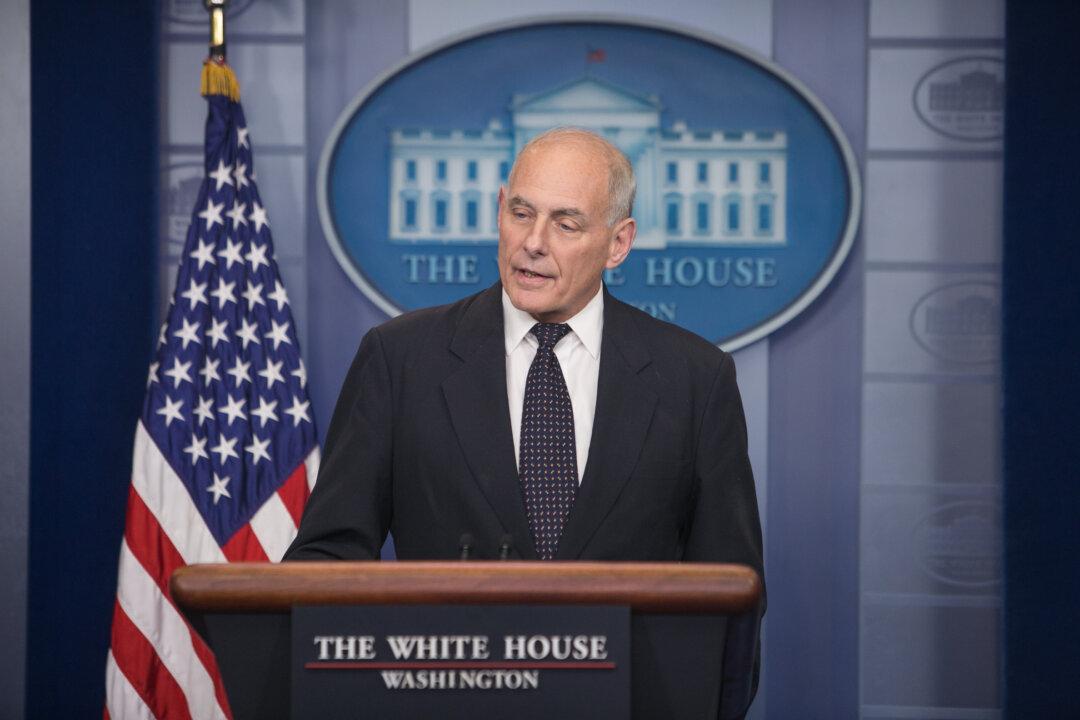WASHINGTON—White House Chief of Staff Gen. John Kelly silenced the press today with an emotional and somber account of what happens to an American soldier when they are killed in action.
Kelly described how the soldier’s remains are immediately covered in a shroud by their buddies—anything available that is appropriate. Then, the soldier’s body is transported to the base and packed in ice to be flown to Europe.





